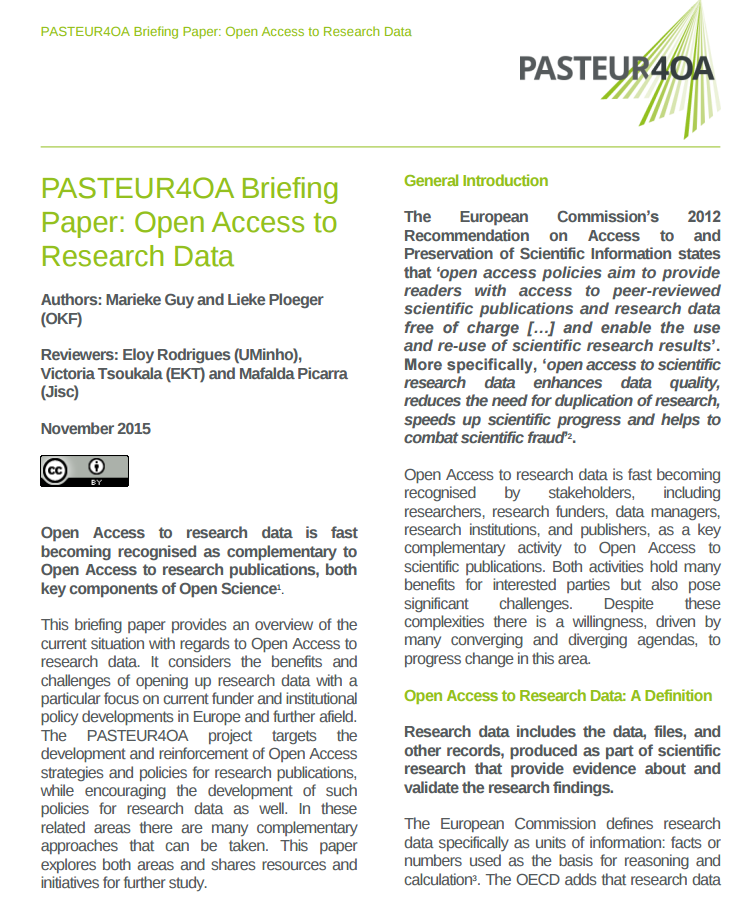PASTEUR4OA Briefing Paper on the disciplinary differences in opening research data
Danny Lämmerhirt - April 25, 2016 in PASTEUR4OA, researchdata
The PASTEUR4OA project has produced a series of advocacy resources that can be used by stakeholders to promote the development and reinforcement of Open Access policies when developing new policies or revising existing ones. A new briefing paper, written by Open Knowledge, sheds light on the possibilities and challenges of opening research data in different academic disciplines.
Funders, academic institutions, journals and data service providers adopt open access policies including the publication of data underlying research results. While these mandates are an important step towards open science, they often neglect that there is no ‘one-size-fits-all’ approach to open research data across academic disciplines. Different disciplines produce different types of data and have various procedures for analysing, archiving and publishing it. Some have established data management procedures, norms or policies, making their research data open by default, while others do not. Consequently the Research Information Network (RIN) states in a report that
‘if the policies and strategies of research funders, universities and service providers are to be effective in optimising the use and exchange of scholarly information, they must be sensitive to the practices and cultures of different research communities.’
This briefing paper presents the current state of open research data across academic disciplines. It describes disciplinary characteristics inhibiting a larger take-up of open research data mandates. These characteristics include data management practices, disciplinary norms of data sharing, career-related factors, infrastructural factors, and legal and ethical questions of public access, Additionally, the paper presents the current strategies and policies established by funders, institutions, journals and data service providers alongside general data policies. It can be found on the website of PASTEUR4OA.
 Open Access Working Group
Open Access Working Group 



